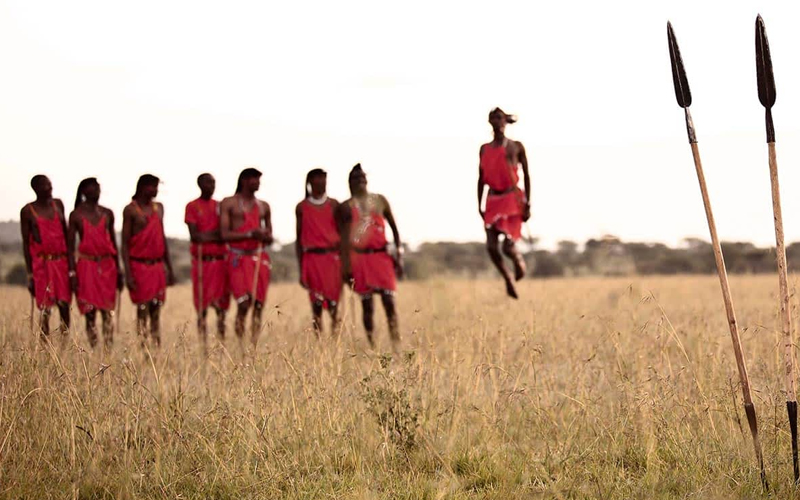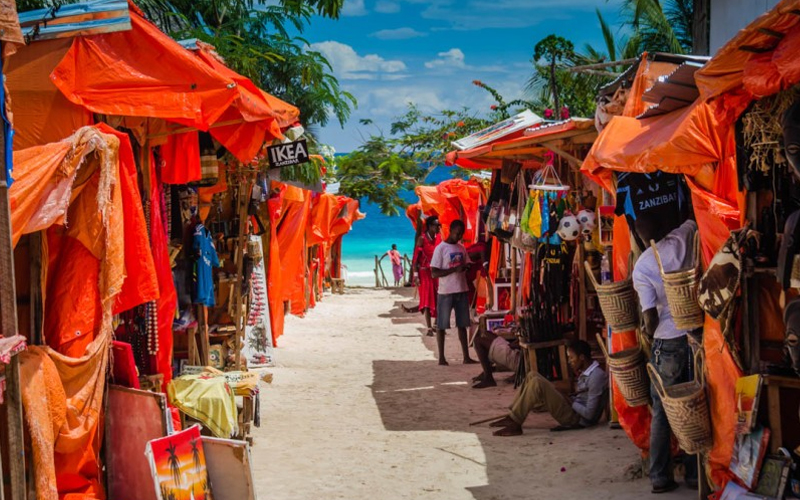A trip to Tanzania is often synonymous with thrilling wildlife safaris, but beyond the Big Five and endless savannahs lies a rich tapestry of cultures waiting to be explored. One of the most rewarding cultural experiences in Tanzania is visiting Maasai villages. The Maasai, with their vibrant attire and age-old traditions, offer visitors a unique glimpse into their fascinating way of life. This article will guide you through what to expect, what to look forward to, and how to make the most of your visit to a Maasai village.
The Maasai People
- Historical Background: The Maasai are a semi-nomadic people known for their warrior culture and traditional lifestyle. Originally from the Nile Valley in Sudan, they migrated southwards to Kenya and Tanzania around the 17th and 18th centuries. Today, they primarily inhabit the regions surrounding the Serengeti and the Maasai Mara.
- Cultural Significance: The Maasai culture is deeply rooted in their relationship with the land and their cattle, which they consider sacred. Their social structure is organized around age sets, and rites of passage such as circumcision and lion hunting (no longer practiced) are integral to their identity. The Maasai are also known for their distinctive dress, which includes shukas (colorful cloths) and elaborate beadwork.

Francisco Raymond
Tanzania Safari Specialist
Plan a memorable Tanzanian adventure?
Save time and ensure an incredible safari experience by getting quotes from our Tanzania safari and trekking specialist
Preparing for Your Visit
- Cultural Sensitivity: When visiting a Maasai village, it’s important to approach with respect and cultural sensitivity. Understanding and honoring their customs will enrich your experience. Dress modestly, ask for permission before taking photographs, and be mindful of your behavior.
- What to Bring: Consider bringing small gifts such as school supplies, clothing, or non-perishable food items. These can be a meaningful way to show appreciation and support the community. Additionally, learning a few phrases in Maa, the Maasai language, can go a long way in building rapport.
What to Expect During Your Visit
- Warm Welcome and Introduction: Upon arrival, you will likely be greeted with traditional Maasai songs and dances. This vibrant welcome is not just a performance but a genuine expression of their hospitality. Engage with your hosts, ask questions, and show interest in their traditions.
- Tour of the Village: A typical visit includes a guided tour of the village, where you’ll see the bomas (traditional huts) made of mud, sticks, and cow dung. The layout and construction of these huts reflect the Maasai’s resourcefulness and connection to their environment. You’ll also get a chance to visit the cattle enclosures, which are central to Maasai life.
Immersive Cultural Experiences
- Traditional Dance and Music: Maasai music and dance are integral to their culture. You may witness or participate in the adumu, or “jumping dance,” which is performed by the warriors. This dance is a test of strength and endurance, and its rhythmic chants and high jumps are mesmerizing to watch.
- Crafts and Beadwork: The Maasai are renowned for their intricate beadwork, which is not only beautiful but also carries significant cultural meaning. Women create beaded jewelry that symbolizes various aspects of their lives, such as marital status and social ranking. Engaging in a beadwork session can be a fascinating and hands-on way to learn about their artistic traditions.
Learning About Daily Life
- Roles and Responsibilities: During your visit, you’ll learn about the distinct roles of men, women, and children within Maasai society. Men are typically responsible for herding and protecting the livestock, while women manage the household chores, including constructing and maintaining the huts. Children, from a young age, are involved in herding and caring for the cattle.
- Educational Initiatives: Many Maasai villages are increasingly prioritizing education. You may have the opportunity to visit a local school, where you can interact with the students and learn about the challenges and progress in Maasai education. Supporting these initiatives by donating supplies or funds can make a significant difference.
Maasai Markets and Crafts
- Local Markets: Visiting a Maasai market is an excellent way to experience the local economy and purchase authentic souvenirs. These markets are often bustling with activity, offering everything from beadwork and shukas to handmade tools and household items.
- Supporting Local Artisans: Purchasing crafts directly from Maasai artisans ensures that your money goes towards supporting their livelihoods. These handcrafted items are not only beautiful but also serve as meaningful reminders of your cultural safari.
Sustainable Tourism Practices
- Eco-Friendly Approaches: Choosing eco-friendly tour operators and practices helps preserve the Maasai way of life and the environment. Look for tours that emphasize sustainability and community involvement.
- Long-Term Impact: Sustainable tourism has a long-term positive impact on Maasai communities by providing income and promoting cultural preservation. Your visit can contribute to these efforts, ensuring that future generations can continue to thrive and share their heritage.
Visiting a Maasai village is a deeply enriching experience that goes beyond mere sightseeing. It offers a unique opportunity to engage with a vibrant culture, learn about traditional ways of life, and contribute to the sustainability of Maasai communities. By approaching with respect and an open mind, you’ll gain invaluable insights and create lasting memories of your cultural safari in Tanzania.

Francisco Raymond
Tanzania Safari Specialist
Plan a memorable Tanzanian adventure?
Save time and ensure an incredible safari experience by getting quotes from our Tanzania safari and trekking specialist
FAQs
1. How do I arrange a visit to a Maasai village?
You can arrange a visit through reputable tour operators that offer cultural safaris. Many tours include Maasai village visits as part of their itinerary.
2. Is it safe to visit Maasai villages?
Yes, visiting Maasai villages is generally safe. Always follow your guide’s instructions and respect local customs.
3. What should I wear when visiting a Maasai village?
Dress modestly, covering your shoulders and knees. Comfortable, respectful clothing is recommended.
4. Can I take photographs during my visit?
Yes, but always ask for permission before taking photographs, especially of people. Respect their wishes if they decline.
5. How can I support Maasai communities after my visit?
You can support Maasai communities by purchasing their crafts, donating to educational initiatives, and promoting sustainable tourism practices.



